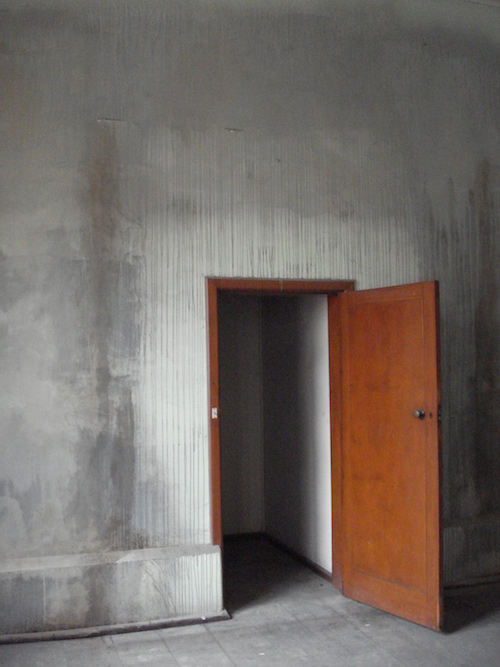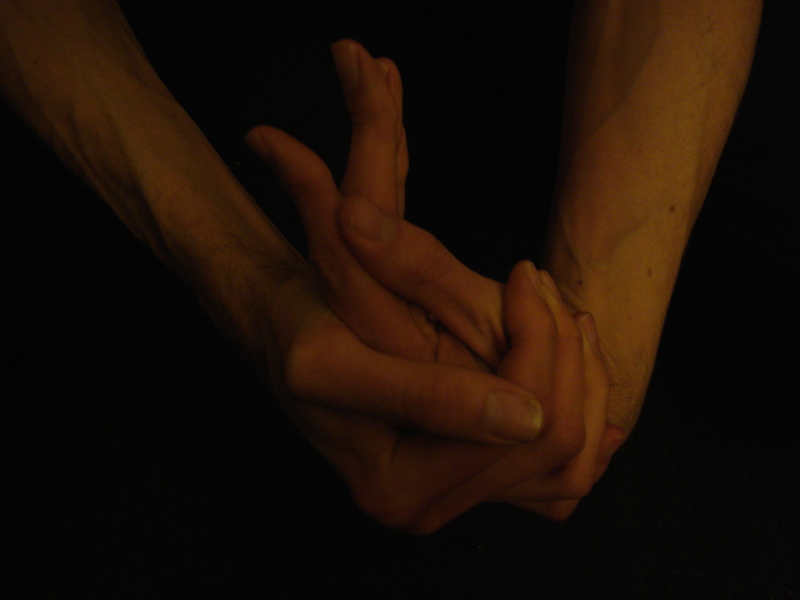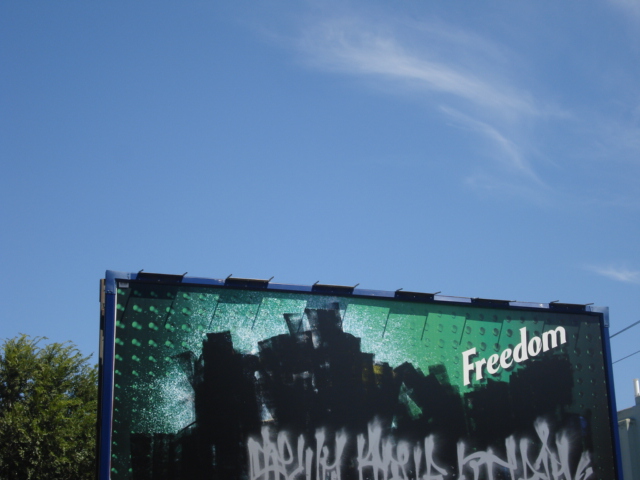“Becoming-Marfan”: Poetry, Genetics and (Auto)Biography
By Andy Jackson,
When I write becoming, you don’t know what words will follow, but you expect something. As a reader, you are thrown into a state of tension, anticipation and presence. Becoming what? It could be anything. But it has to be some kind of transformation, from one state towards another. Becoming is inspired by another state or person, but it’s not about imitation – it’s an improvised movement towards something new and unique.
Becoming produces nothing other than itself. We fall into a false alternative if we say that you either imitate or you are. What is real is the becoming itself, the block of becoming, not the supposedly fixed terms through which that which becomes passes.1
For the last few years, I’ve been writing a series of poems which are biographical portraits of people with the same genetic condition I have, Marfan Syndrome – almost all of them written in the first-person, often sourced from the person’s own words. The poems cover a diversity of eras, cultures, classes, ages, sexualities and personalities. I know why I am drawn to this project. But how to do it in a way that is not only respectful but illuminating and productive?
In this final post, I want to try to see if the idea of becoming, as proposed by French philosopher-writers Gilles Deleuze and Felix Guattari, might shine some light on these poems – and vise versa.
 Brian Massumi, renowned translator and commentator of Deleuze and Guattari, describes becoming as “a tension between modes of desire plotting a vector of transformation between two molar co-ordinates”.2 There’s a lot to unpack there, but one shortcut is to look at what these desires are attempting to elude or transcend. I think of psychiatric diagnosis and medication, factory farming, sexual violence, offshore detention of asylum seekers, addictions and compulsions both illegal and corporate-generated, and more. All these phenomena attempt to capture the complex and unpredictable within fixed identities and associated behaviours. They harness dynamic potentials within static definitions. These definitions are molar, in contrast to the molecular.
Brian Massumi, renowned translator and commentator of Deleuze and Guattari, describes becoming as “a tension between modes of desire plotting a vector of transformation between two molar co-ordinates”.2 There’s a lot to unpack there, but one shortcut is to look at what these desires are attempting to elude or transcend. I think of psychiatric diagnosis and medication, factory farming, sexual violence, offshore detention of asylum seekers, addictions and compulsions both illegal and corporate-generated, and more. All these phenomena attempt to capture the complex and unpredictable within fixed identities and associated behaviours. They harness dynamic potentials within static definitions. These definitions are molar, in contrast to the molecular.
I can describe the subject that I am in molar terms – a white, male, tertiary-educated, urban, heterosexual Australian with Marfan Syndrome. I expect most of these definitions are familiar to you; Marfan, less so. Marfan is a genetic condition where connective tissue is deficient – people with it can be liable to sudden aortic dissection, skeletal and joint abnormalities, dislocation of the lens of the eye, systemic pain – some, all or none of these symptoms. In molecular terms, I am… well, there are immensely complex energies at play here; attractions, potentials and movements that link up with other energies to form alliances and transformations. I suspect that I am a poet because writing admits and enhances the molecular as well as the molar – what becomings I could enter into, as well as who I nominally am.
Becoming is inherently relational. It happens because the writer stands before a multitude (crowd or pack) which is other to the writer, and for which he or she feels some deep affinity. This affinity does not need to be conscious or clear. It is an unsettling resonance between the writer’s self and these others, such that the self is put into question. Becoming arises out of this unsettling – micro-energies come together to generate and perpetuate creativity, enabling either a new (more or less stable) identity formation or an escape from identity itself into pure immanent existence.
Also, while becoming is unpredictable and can take many forms, it does have a direction – from majority to minority. This isn’t a question of numbers; minority is determined by oppression, suffering and the blockages of becoming.3 This is most obvious in taken-for-granted categories assumed to be the inferior portion of a binary – hence, becoming-woman, becoming-child and becoming-animal. Those who are identified as women, children, animal, are cornered in that category; their actions, desires, biologies and thoughts are interpreted according to the abstraction and made to conform to it. Good boy, good dog, beautiful woman.
Yet the conformity can never be complete or final; bodies always eclipse definition and are caught up in desires to connect with other bodies outside the boundaries allotted to them. Becoming is the process of exploratory non-conformity, delving into and amplifying the inevitable “falling short”.

So, becoming is essentially about bodies and their infinite potential to disturb. Brian Massumi explores becoming in an entire chapter of his book A User’s Guide to Capitalism and Schizophrenia, entitled “normality is the degree zero of monstrosity”. A scan of the words which Massumi associates with becoming reveals not only the corporeal nature of becoming, but its aberrant and marginal character – monster, freak, mutant. These are not just hyperbolic but descriptive. I could certainly write becoming-disabled, becoming-genetically-disordered.
The corporeality of disability is not that of an other fixed in a binary relation to the normatively embodied self, but is already queer in its contestation of the very separation of self and other… [It] is not that disability is a unique case, but only that its forms of embodiment seem to overdetermine the fragility and instability of corporeality in general.4
Ironically, while molar forces seek to fix some bodies in a permanent category of disability, disabled bodies are the ones most marked by potentials of becoming – so-called “deformed” bodies which are ineffably beautiful, physical movements which are unorthodox, or bodies connected not only with prosthetics but with other bodies. James Overboe writes of his experience of cerebral palsy in this very way – “my spasms are immanent desires that create a singularity that is neither ‘able’ nor ‘disabled’ and affirms a disabled expression of life”.5 Even (perhaps even especially) those conditions which appear most strange to the reliably-productive, gainfully-employed citizen – for example, autism – can be figured as a becoming, a refusal of the affective conditions the contemporary subject requires.6
A writer might decide to pursue becoming, but on one level this affirmation of the minor is not triggered by any decision. Something happens, some crack in life-as-we-know-it. There is an “incredible feeling of an unknown Nature – affect”.7 In Deleuze’s short essay “Literature and Life”, this is associated, clearly yet enigmatically, with illness.
Literature then appears as an enterprise of health; not that the writer would necessarily be in good health… but he possesses irresistible and delicate health that stems from what he has seen and heard of things too big for him, too strong for him, suffocating things whose passage exhausts him while nonetheless giving him the becomings that dominant and substantial health would render impossible. The writer returns from what he has seen and heard with red eyes and pierced eardrums.8
Here, the rupture comes from outside and could be construed as existential dislocation, but the experience is intensely and painfully physical, and I would argue that here health is as much actual as metaphorical. Deleuze himself was “stricken with a recurring respiratory ailment in his twenties, … rarely travelled, had to give up drinking and was dependent on a large quantity of drugs to maintain his health”.9 This allowed physical sensations, awareness of beauty, desires and the experience of time itself to be amplified and refracted, giving him time not only to read but to “listen to life”.
Each body – including Deleuze’s, mine and yours – experiences the disintegration and inconsistencies which can undermine fixed identity – the disorientation of ageing and injury, unexpected sexual desires, memory loss or deja vu, and so on. All these are irruptions of the minor, points of potential departure. Illness or disability is a state which can prompt us towards a kind of health more profound than the medical kind – it requires another way of being.

Becoming is not romantic or utopian, but risky. Failed becomings include not only drug addiction and insanity, but hyper-abstracted experimental poetry which places itself out of the reach of even the most determined reader, leaving no traces of itself. Writing as becoming, I believe, must take risks cautiously and deliberately. “[Y]ou have to keep small supplies of signifiance and subjectification”.10 I take this as advocating a poetics of pragmatic experimentation, where the poem opens up little cracks rather than demanding a leap across a fissure of sense too big for any one body.
Another risk is that the writer doesn’t actually reach becoming but only imitation or appropriation. The concept of becoming-woman has been much criticised from a feminist perspective, as involving caricature and idealisation.11 The man, again, seems to be in the privilege of being able to freely engage in the experimentation of becoming, with the safety-net of stable economic and political power. It can be too easy, even shameless12, to presume to appreciate the experiences of those who have lived as women, as if becoming-woman were a kind of risk-free drag. A minefield to be sure.
Fixed identities, like masculinity, are not easy to take flight from. What Deleuze and Guattari recommend is not “an imitation, or, at the limit, an identification”13, but “carrying the indeterminacy, movement and paradox of the female stereotype past the point at which it is recuperable by the socius”.14 What that means, we can’t know in advance – people (men and women) have to improvise their own particular pathways of transcendence.
 Becoming proliferates in the soil of the complex instability of each body. The writer mines the multiplicity of their body in order that their writing becomes truly creative and viscerally connective. The writing implies not just one writer and one reader, but many others. Deleuze asserts, “[h]ealth as literature, as writing, consists in inventing a people that is missing”.15 Reading this kind of writing involves a kind of recognition, a sense that the reader’s own intuitions and bodily stirrings have been acknowledged, and even encouraged. The lone reader, sensing other hypothetical readers, suspects the existence of a community she might belong to, or come to belong to. In fact, she creates it by affectively engaging with the text and her own multiplicity.
Becoming proliferates in the soil of the complex instability of each body. The writer mines the multiplicity of their body in order that their writing becomes truly creative and viscerally connective. The writing implies not just one writer and one reader, but many others. Deleuze asserts, “[h]ealth as literature, as writing, consists in inventing a people that is missing”.15 Reading this kind of writing involves a kind of recognition, a sense that the reader’s own intuitions and bodily stirrings have been acknowledged, and even encouraged. The lone reader, sensing other hypothetical readers, suspects the existence of a community she might belong to, or come to belong to. In fact, she creates it by affectively engaging with the text and her own multiplicity.
Writing also “invents a people that is missing” through practices of collaboration. A Thousand Plateaus itself is an example. Deleuze has also said “writing with someone else becomes completely natural. It’s just a question of someone passing through you, a current”.16 I have written much of these Marfan poems using actual quotes from the people themselves and then supplemented them with my own attempts to become their voice. As the process of editing the poems progresses, and especially when the poems are finished, I often forget which is which.
On one level, these poems could be considered to be firmly based in an identity category, risking a kind of essentialism. Yet, because Marfan Syndrome is so variable, the category is incredibly wide, promiscuously inclusive. Each poem requires me to engage a different kind of becoming, to activate affinities based not on the condition but on the embodied experience of each person. Some of those experiences I have shared, many I have not, but all of them are potentially within reach. It is a question not just of imagination but of bodily becoming.
I have to admit, though, those lives that are labelled as Marfan, and whose experiences are accessible to me, have tended to come from those nation-states which have advanced medical systems and widespread access to the internet. Is there a Marfan-ness in the majority world, among the poor? How can I signal my ignorance or incorporate the limits of my approach within these poems? For now, I don’t expect to be able to validate or condemn my own attempts. All I can do is indicate how becoming can trip itself up and hope that even in the tripping, the poetry travels somewhere unexpected and productive.
_______________________
1 Deleuze, Gilles, and Félix Guattari. A Thousand Plateaus: Capitalism and Schizophrenia. Trans. Brian Massumi. Minneapolis: University of Minnesota Press, 1987. Print. p.237-8
2 Massumi, Brian. A User’s Guide to Capitalism and Schizophrenia: Deviations from Deleuze and Guattari. A Swerve ed. Cambridge, Mass: MIT Press, 1992. Print. p.45
3 Lawlor, Leonard. “Following the Rats: Becoming-Animal in Deleuze and Guattari.” SubStance 37.3 (2008): 169–187. Web. 25 March 2015. p.174
4 Shildrick, Margrit. “Queering Performativity: Disability After Deleuze.” SCAN: e-J of Media Arts 1 (2004): n. pag. Print.
5 Overboe, James. “Affirming an Impersonal Life: A Different Register for Disability Studies.” Journal of Literary & Cultural Disability Studies 3.3 (2009): 241–256. Web. 25 March 2015. p.229
6 Skott-Myhre, Hans A., and Christina Taylor. “Autism: Schizo of Postmodern Capital.” Deleuze Studies 5.1 (2011): 35–48. Web. 25 March 2015. p.42
7 Deleuze and Guattari, p.240
8 Deleuze, Gilles. “Literature and Life.” Trans. Daniel W. Smith and Michael A. Greco. Critical Inquiry 23.2 (1997): 225–30. Web. 25 March 2015. p.228
9 Musser, A. J. “Reading, Writing, and Masochism: The Arts of Becoming.” differences 23.1 (2012): 131–150. CrossRef. Web. 25 March 2015. p.139
10 Deleuze and Guattari, p.160
11 Massumi, p.86
12 Connor, Steve. “The Shame of Being a Man.” Textual Practice 15.2 (2001): 211–230. Web. 25 March 2015. p.225
13 Deleuze and Guattari, p.258
14 Massumi, p.87
15 Deleuze, p.228
16 Deleuze, Gilles. “On Philosophy.” Negotiations, 1972-1990. Trans. Martin Joughin. New York: Columbia University Press, 1995. 135–156. Print. p.141
1 thought on ““Becoming-Marfan”: Poetry, Genetics and (Auto)Biography”
Comments are closed.